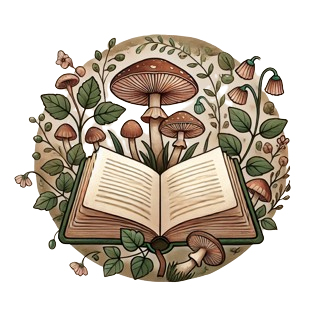
I never expected that four letters—PCOS—would change my life so much. For years, I struggled with symptoms that I couldn’t quite piece together: irregular cycles, unexplained weight gain, fatigue, and a battle with infertility. I chalked it up to stress, diet, or just bad luck. But deep down, I knew something wasn’t right.
The Long Road to Diagnosis
Like many others with Polycystic Ovary Syndrome (PCOS), my journey to a diagnosis wasn’t straightforward. Doctors dismissed my concerns at first, telling me that irregular periods were “normal” or that my symptoms would resolve with weight loss. But I knew my body, and I knew something was off.
I had gotten an IUD when I was around 18 years old. It was supposed to help with my periods and menstrual pain which I had severe pain with since I had started having periods. That’s when I started noticing the weight gain. I have always been a little heavier for what was “normal” ( I hate using that word btw) but I started noticing rapid weight gain after having the IUD for about 3 months.
After going back to my doctor I was told to diet, exercise, and make sure to keep active. Which is good advice, except that I was. I had been. I noticed changes and tried to stop it. I resorted to going back to unhealthier ways to lose weight that I had tried previously. It worked for a while but no matter how hard I tried it, it got worse. My mood drastically changed and I was really struggling.
That was at the beginning of the issues. I went to doctor after doctor. I switched multiple times. I tried so hard. I was desperate. There was nothing I could do and I had felt so defeated. My body didn’t feel like mine.
After years of frustration, I finally found a doctor who took me seriously. Blood tests, ultrasounds, and a deeper look at my symptoms confirmed what I had suspected—PCOS. While it was a relief to have an answer, it was also overwhelming. What did this mean for my health? My future? My ability to have children one day?
Learning to Manage PCOS & Love My Body
Once I had my diagnosis, I realized that PCOS isn’t just about reproductive health—it affects nearly every aspect of my body. At first, I felt disconnected from myself, frustrated that my body wasn’t functioning the way I thought it should. But over time, I learned to shift my mindset from fighting my body to working with it.
Some things that have helped me along the way:
- Focusing on Nourishment, Not Restriction: I’ve learned to fuel my body with foods that support my hormones without falling into toxic diet culture. Not every person on the internet has good intentions (WOW! You don’t say!). I learned from creators who used positive lessons and recipes based on education rather than the diet tea people. My algorithm for my feeds started changing after that and I noticed that I didn’t feel so guilty anymore over something I can’t quite control.
- Moving My Body for Joy: Exercise is no longer about punishment or weight loss—it’s about energy, strength, and mental clarity. No matter what I exercise everyday even if it’s just for 30 minutes. I use dance videos, walking, and some weight lifting. Could I do more? For sure and sometimes I do. But 30 minutes is all I can manage somedays and that’s FINE! Give yourself grace and just know that as long as you are trying, you are doing your best.
- Managing Stress & Practicing Self-Care: I’m learning to listen to my body’s needs and rest when necessary, instead of feeling guilty. I used to think that resting or taking time to myself was laziness. Weird thing was I didn’t think that way about other people though. I just thought that if people knew I was having a self care day instead of doing X, Y, or Z they would contribute it to my weight gain and fatigue. It was exhausting but now, I LOVE to rest. Why? Because I started noticing such a major change in myself when I gave myself time to heal and rest and find peace. Its so important.
- Finding Support & Community: Connecting with others who have PCOS has reminded me that I am not alone in this journey. I started learning that there were a lot more people diagnosed with PCOS around me but being from the Midwest, people are weird when talking about any medical issues whether mental or physical. I started sharing my experience and was able to talk to quite a few people in my life struggling with similar issues. It was so nice knowing I’m not alone.
The Emotional Side of PCOS
PCOS affects more than just physical health—it takes a toll on mental and emotional well-being too. The frustration of dealing with symptoms, the anxiety about fertility, and the feeling of not being taken seriously by doctors—it was a lot. Learning to advocate for myself, seek support, and practice self-compassion has been a crucial part of my healing.
I used to see my body as something that was working against me. Now, I see it as something I need to care for, listen to, and appreciate—even when it’s not perfect.
Moving Forward
PCOS is a lifelong condition, but that doesn’t mean it has to define me. I’m still learning, still figuring out what works best for me, and still reminding myself that my worth isn’t tied to my symptoms. If you’ve recently been diagnosed with PCOS—or if you suspect you have it—know that your feelings are valid. Trust your body, advocate for your health, and don’t be afraid to seek support. Find doctors who will see you as a patient and not just a problem!
Your body is not broken. It deserves love, care, and patience.
Have you been diagnosed with PCOS? What has helped you the most? Let’s share our experiences and support each other.

Leave a Reply